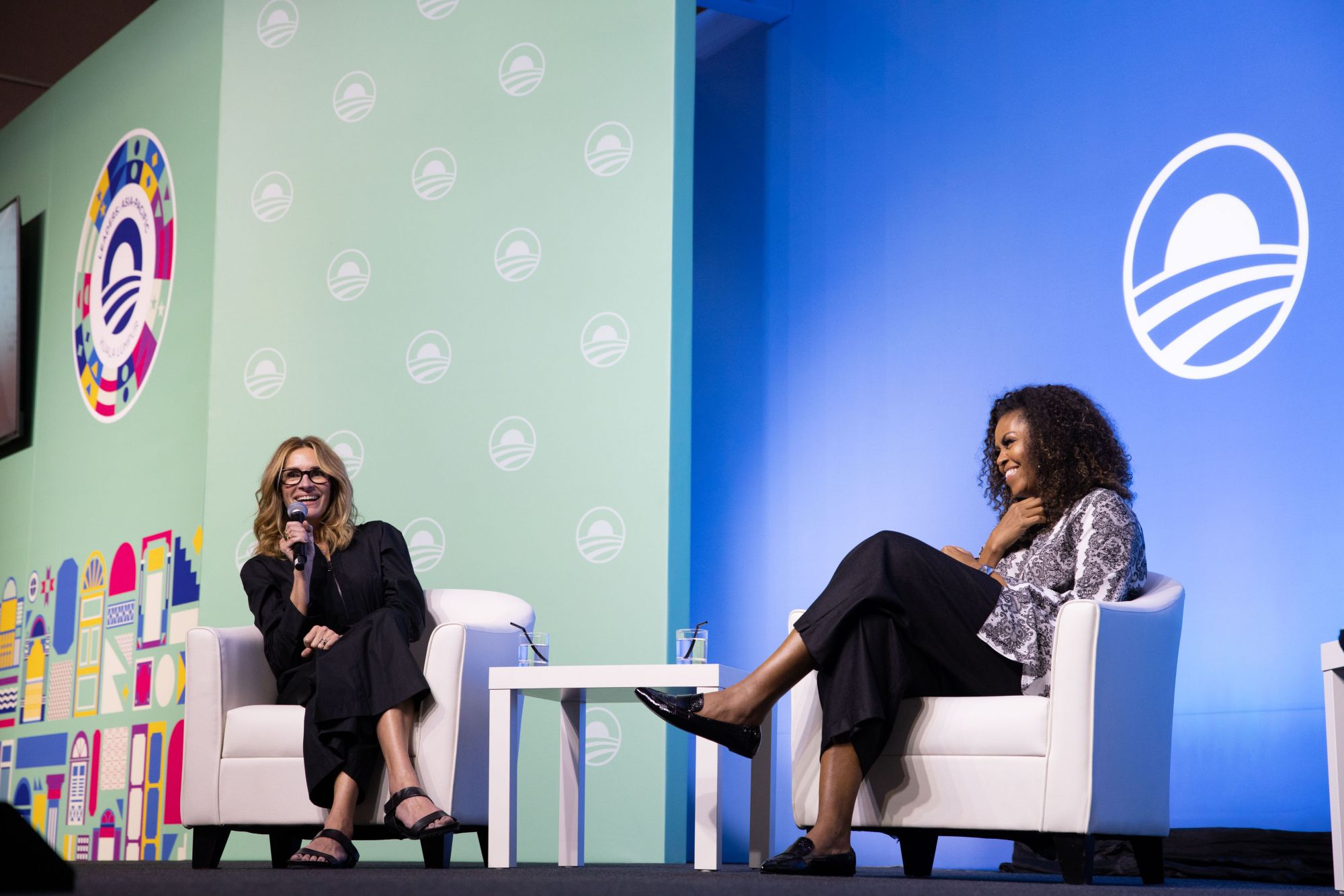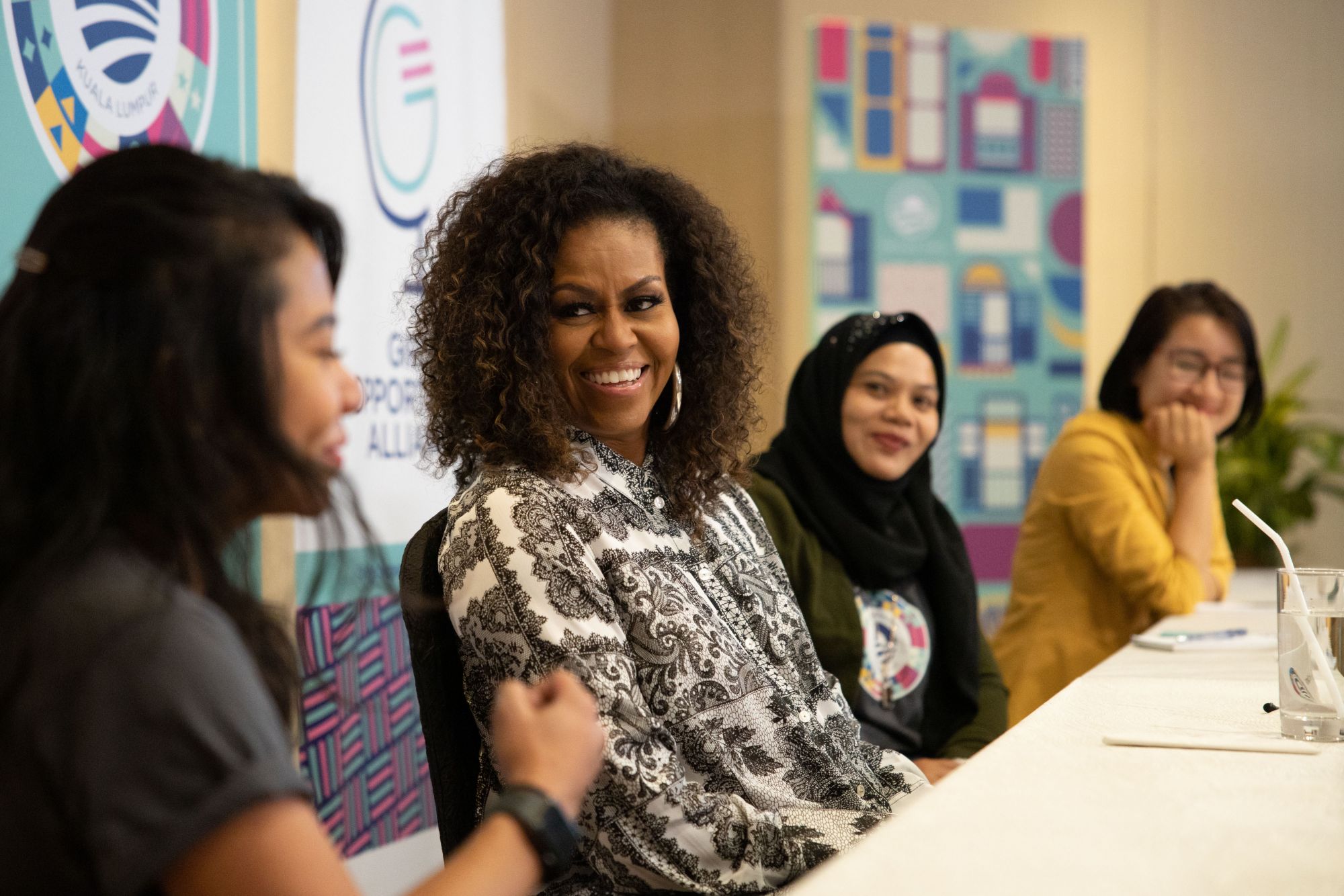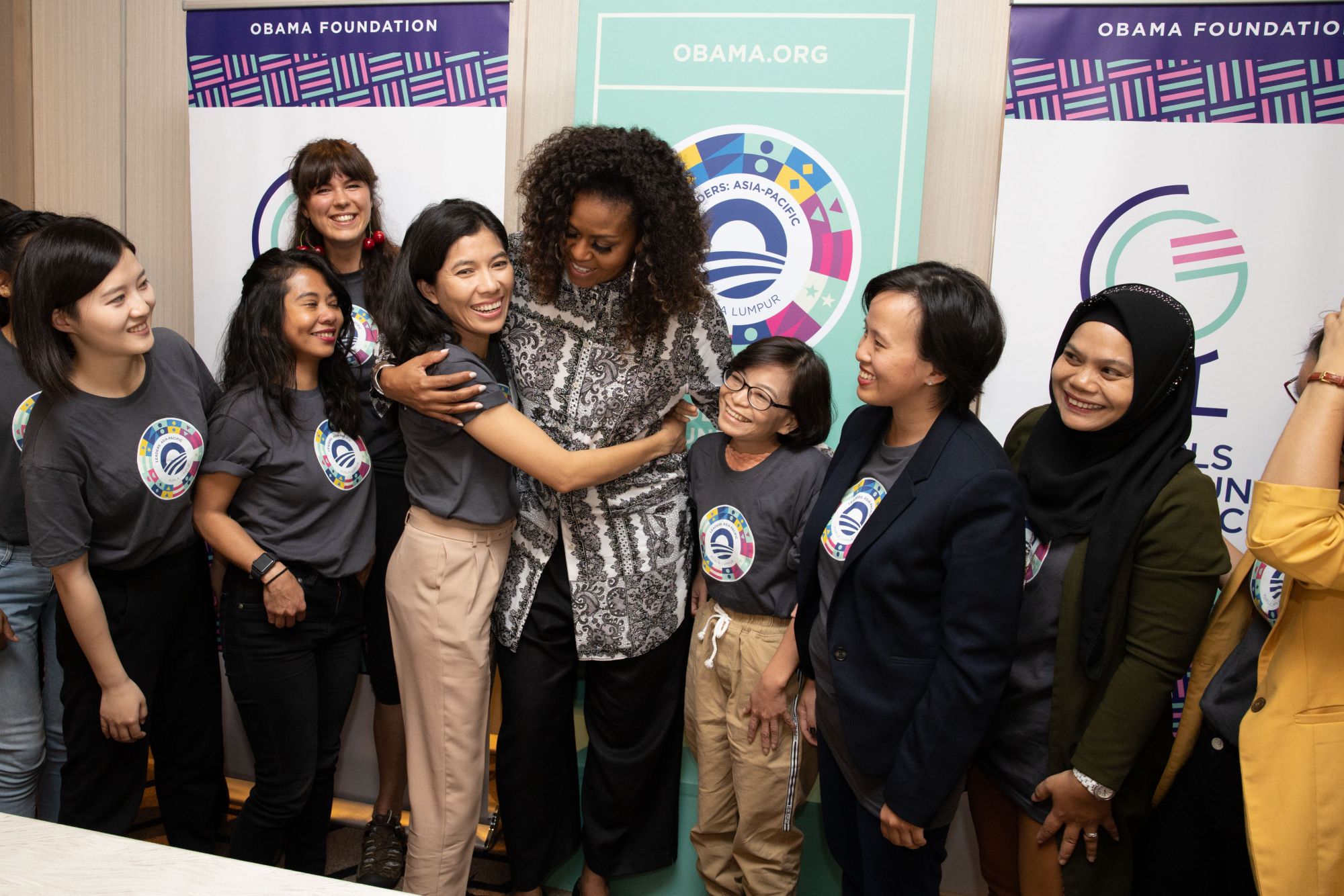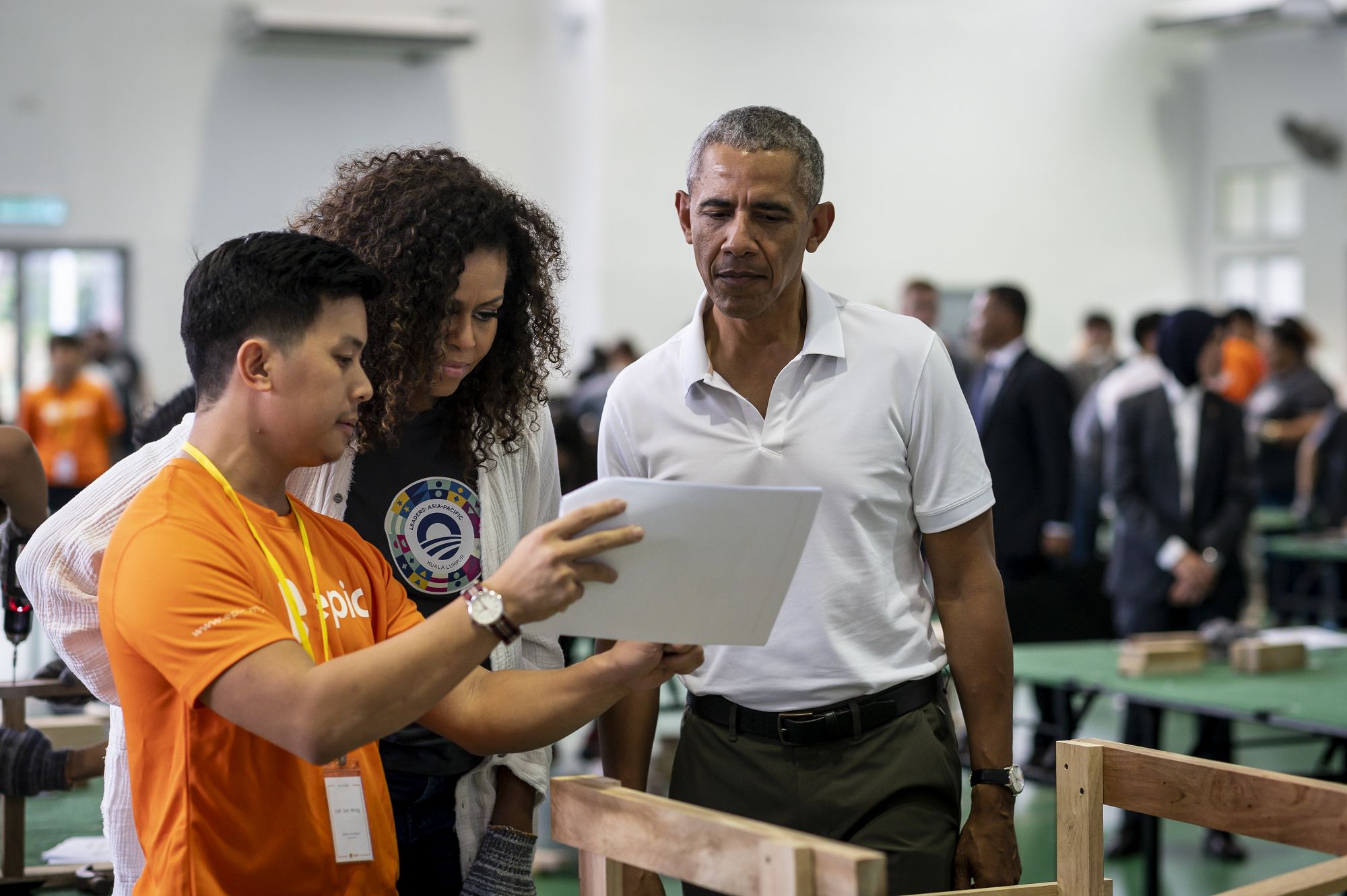Michelle Obama was characteristically candid at a closed-door event for Obama Foundation Fellows in Kuala Lumpur. Here are six lessons on life, love and leadership from the former First Lady
She's a renowned lawyer, academic, author and the first African American First Lady of the United States. Last week, she even won a Grammy. And still, Michelle Obama speaks of suffering from "imposter syndrome"—the feeling that you don't belong at the highest tables.
The admission was one of several moments of candour from the former First lady, as she addressed a roomful of young leaders assembled for the Obama Foundation's inaugural Leaders: Asia-Pacific summit in Kuala Lumpur. Also on the agenda: learning to "drown out the haters" and resisting the occasional urge to push her husband out of a window—"not a high one, just a low one."
Here are highlights of the session, which was in conversation with actress Julia Roberts, who toured Asia with the Obamas in support of their foundation's initiatives, and moderated by former Miss Universe and activist Deborah Henry.
1. The future of the world is only as bright as our girls
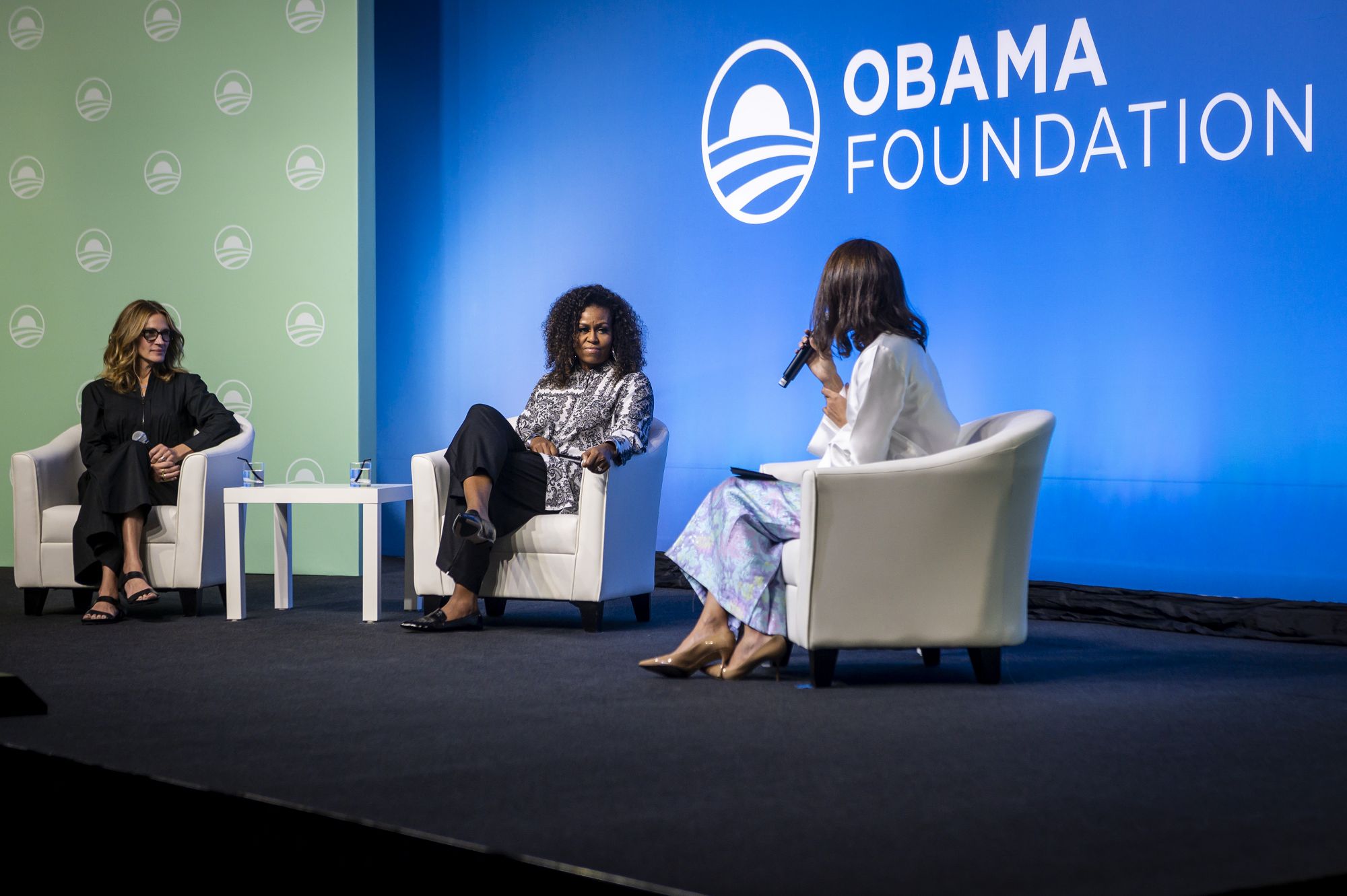
“Truth isn’t just going to come from the mind of a male, it’s going to come from all of us. If we’re under investing in half the people on the planet, I guarantee we’re missing some answers. There are millions of girls born with a hunger to do something. I know because I was one of them. To have that not be invested in, that’s what sinks hopes, that’s what stagnates minds, that’s what wastes resources. It’s unspeakable, it’s wasteful and it’s not a smart move for the planet, that’s why we started the Girls Opportunity Alliance."

